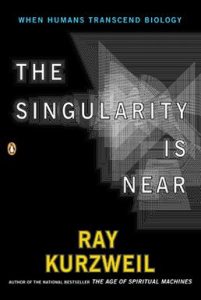The Singularity (AKA) the technological singularity is defined by Wikipedia as “the hypothesis that the invention of artificial superintelligence will abruptly trigger runaway technological growth, resulting in unfathomable changes to human civilization. According to this hypothesis, an upgradable intelligent agent (such as a computer running software-based artificial general intelligence) would enter a “runaway reaction” of self-improvement cycles, with each new and more intelligent generation appearing more and more rapidly, causing an intelligence explosion and resulting in a powerful superintelligence that would, qualitatively, far surpass all human intelligence.”
Sources on both sides of the argument are super-easy to discover. Just Google “The Singularity” and enjoy the ride. Very likely you will come back to the question of whether there is something truly unique and unreplicable about human existence, or do we just hope there is?
Answering the question implicates the future of communications law in at least two ways:
- If the Singularity occurs the future of law itself is existentially implicated. Do laws simply become computer code, or would there be no need for law (including communications law) at all?
- If we humans choose to intervene to stop the “The Singularity” from ever happening, the means and methods of Communications Law will certainly be used to some significant degree.
Many popular prediction predict 2040 as the date by which all this happens. To be conservative you have an extra thirty five years to play with.
More in class…
Jon
